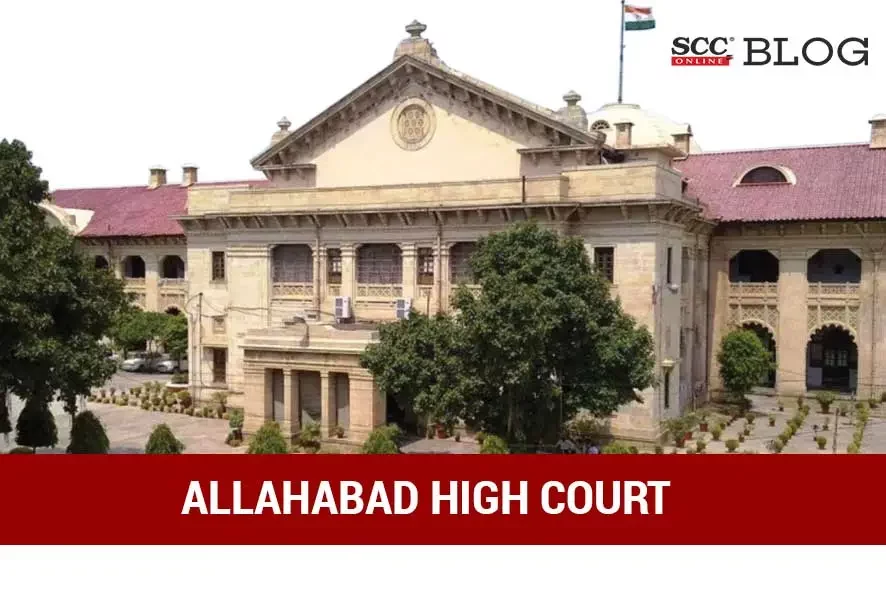Allahabad High Court: In an appeal filed under Section 384(1) of the Succession Act, 1925 (‘Act, 1925’) against the order passed by the Civil Judge, wherein the Court had rejected the application preferred under Section 372 of the Act , 1925 for obtaining the Succession Certificate, under the Succession Act, concerning the issue that whether the present appeal is maintainable in view of the provisions contained in Section 388(2) of the Act, 1925, Yogendra Kumar Srivastava, J., has said that the order having been passed by the Civil Judge invested with the power to exercise the function of a District Judge under Part X, the proviso to Section 388 (2) would be attracted and an appeal from the order passed by the Civil Judge, which is the inferior Court, would lie to the District Judge, and not to the High Court.
The appellant contended that an order passed by the District Judge granting, refusing or revoking the certificate under Part X, which relates to Succession Certificate, would be amenable to an appeal before the High Court. It was also contended that the Civil Judge while passing the order on the application seeking Succession Certificate, was acting as a District Judge and accordingly the appeal would lie before the High Court.
The Court took note of provisions relating to grant of Succession Certificates under Part X of the Succession Act and said that Section 371 under Part X of the Succession Act, confers jurisdiction upon the District Judge for grant of a Succession Certificate, and against an order of the District Judge granting, refusing or revoking a certificate under Part X, a forum for an appeal before the High Court is provided under Section 384.
The Court also took note of Section 388 of the Act and said that Sub-section (1) provides that the State Government may invest any Court inferior in grade to a District Judge with power to exercise the functions of a District Judge under this Part.
The Court noted that the State Government, in exercise of powers under Section 388 (1) of the Act, issued a notification investing all Civil Judges in the State with power to exercise the functions of the District Judge under Part X of the Act.
The Court said that the phrase ‘as if it were’ used in Section 388 (2) is of considerable significance. It is a deeming provision and creates a legal fiction. The use of the deeming clause under Section 388 (2) would mean that any inferior Court invested with power to exercise the functions of a District Judge under Part X shall, within the local limits of its jurisdiction, have concurrent jurisdiction with the District Judge in exercise of all the powers conferred upon the District Judge, and the provisions of Part X relating to the District Judge shall apply to such an inferior Court as if it were a District Judge. Further, as per the proviso to Section 388 (2) states in explicit terms that an appeal from such order from inferior court as mentioned in Section 384 (1), shall lie to the District Judge, and not to the High Court.
The Court remarked that a proviso is added to an enactment to qualify or create an exception to what is in the enactment and ordinarily, a proviso is not interpreted as stating a general rule. The use of a proviso after Section 388 (2) of the Act has the effect of qualifying or creating an exception by providing that an appeal or any order of an inferior court, as is mentioned in Section 384 (1), shall lie to the District Judge. Thus, the legislative intent in providing for an appeal before a District Judge in case of an order passed by an inferior court upon investiture of jurisdiction under Section 388 (1), is also clear from the emphasis in the language of the proviso where it states, ‘and not to the High Court’.
The Court referred to Prem Chand v. Sunil Kumar, 1990 SCC OnLine All 93, wherein it was said that though in ordinary circumstances an appeal against an order passed in proceedings under Chapter X of the Succession Act would lie to the High Court, but this would be subject to the condition that there is no other provision contrary to this, or which may provide otherwise.
The Court noted that Section 388 lays down somewhat a different provision and in its terms where powers of a District Judge are conferred upon an inferior court by a notification of the State Government, such Court shall exercise the powers of the District Judge so far as Part X of the Act is concerned, and in such a case an appeal instead of being filed before the High Court would lie before the District Judge. Thus, it creates a special jurisdiction on a Court subordinate to the District Judge through investiture of power.
The Court said that once such power is invested to a Court, inferior to the District Judge, under sub-section (1), in that event by virtue of the deeming clause under sub-section (2), such Court would discharge the function of the District Judge by reason of such investiture, and have concurrent jurisdiction in exercise of all the powers conferred by Part X upon the District Judge. The proviso to Sub-section (2) creates an exception by providing that an appeal from any order of an inferior court falling within the scope of Section 384 would in such circumstance, lie to the District Judge and ‘not to the High Court’.
[Monika Yadav v. Aakash Singh, 2023 SCC OnLine All 2502, Order dated 29-11-2023]
Advocates who appeared in this case :
Counsel for Appellant:– Advocate Rajesh Yadav







